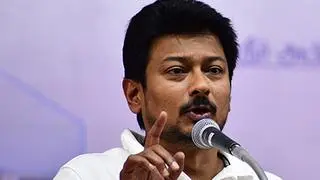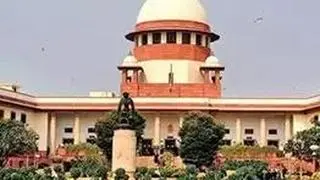With a week to go for the World Trade Organization’s 12th Ministerial Conference, the call is getting louder for an “unambiguous waiver” of intellectual property (IP) on Covid-19 products—vaccines, treatments, and diagnostics.
In the lead up to the meeting, as multiple texts on discussions between member countries get leaked into the public domain, pro-health voices are calling on the governments of South Africa and India to propose “textual amendments” to ensure the smooth sharing of Covid-19 technologies.
Referring to discussions on the leaked texts, Nobel laureate Joseph E Stiglitz said, “It is clear there was uncertainty in the text, and the point of the waiver is to remove uncertainty.”
“Legal uncertainty is a barrier. What company wants tostart producing if it is going to be sued?” said Dr. Stiglitz, calling for an unambiguous waiver along the lines originally proposed by South Africa and India in October 2020.
“Intellectual property is a social construction. It’s something that we as a society have designed which is intended to provide incentives but balance those incentives for research with access to knowledge, ”he said, though this was not witnessed during the pandemic. “The current framework is a failure,” he added.
Disappointed that countries were headed into the WTO meet with no agreement on the table, UNAIDS Executive Director Winnie Byanyima said, “South Africa and India proposed a simple waiver of intellectual property for Covid-19, not only for vaccines, but tests and treatments, 20 months ago. A 100 countries backed the call. This should have been simple and straightforward.“
Broken system
The waiver should have been in place a long time ago, she said, and it would have allowed qualified manufacturers in developing countries to produce life-saving vaccines and secure supplies in countries where they were needed. “Instead, negotiations have been derailed by a number of rich counties,” she said, alleging they chose to protect the monopolies of pharma companies.
“The system is broken. In a pandemic, sharing technology is life or death and we are choosing death,” she said, calling for a “clear, unambiguous waiver” that involved no barriers or hurdles. “No government should need to weigh their WTO obligations against saving lives and stopping the pandemic,” she said, urging “rich countries” to do the right thing in the coming week. “I implore them to put people ahead of profits,” she said.
The speakers pointed out that people had paid for the basic research into the vaccine platform and had participated in clinical trials to develop these products. “We paid for it, but we are not getting the return,” said Stiglitz, speaking at a People’s Vaccine Alliance-organised interaction.
Amend the text
The present agreement being discussed is seen to be restrictive in scope, restricted to vaccines, involving eligibility criteria and so on. South African lawyer and health activist Fatima Hassan cautioned the SA and Indian governments against signing onto this agreement as it would “tie our hands for future purposes.”
Referring to texts proposed by the United Kingdom and Switzerland, she said, “You’ve (SA and India) led bravely for 18 months in proposing this waiver. Now you need to step up and propose textual amendments” to ensure the security of supplies of vaccines and other medical treatments.
Pointing to the repetitive nature of inequities, Liberian frontline nurse George Williams said his country had been decimated by Ebola. But companies were spending more on erectile dysfunction than Ebola, he added.
A leader with the Liberian health workers’ union, Williams famously applauded pharmaceutical companies at the recently concluded World Economic Forum, Davos—a satirical reversal of the world’s applause for healthcare workers during this pandemic.








Comments
Comments have to be in English, and in full sentences. They cannot be abusive or personal. Please abide by our community guidelines for posting your comments.
We have migrated to a new commenting platform. If you are already a registered user of TheHindu Businessline and logged in, you may continue to engage with our articles. If you do not have an account please register and login to post comments. Users can access their older comments by logging into their accounts on Vuukle.